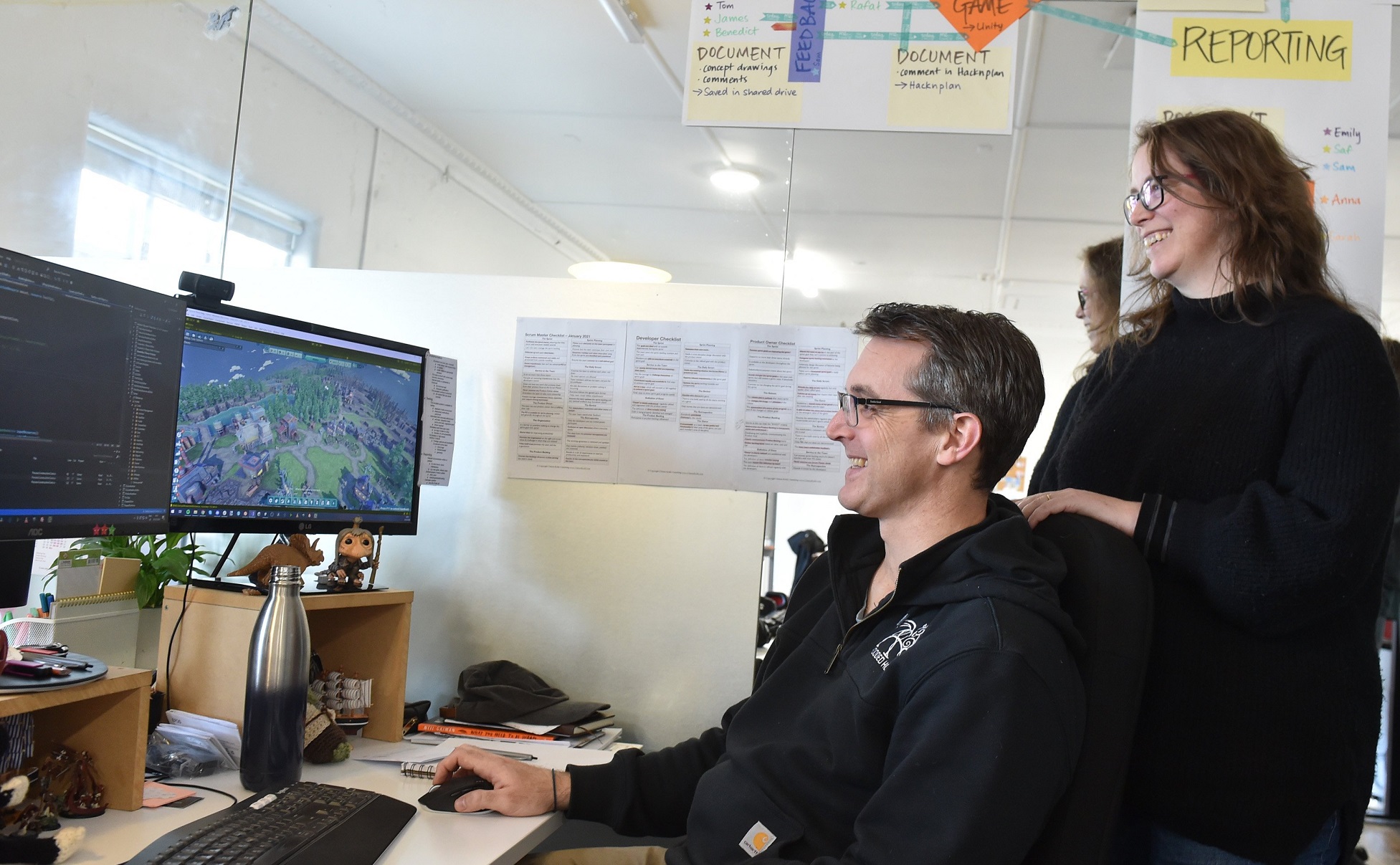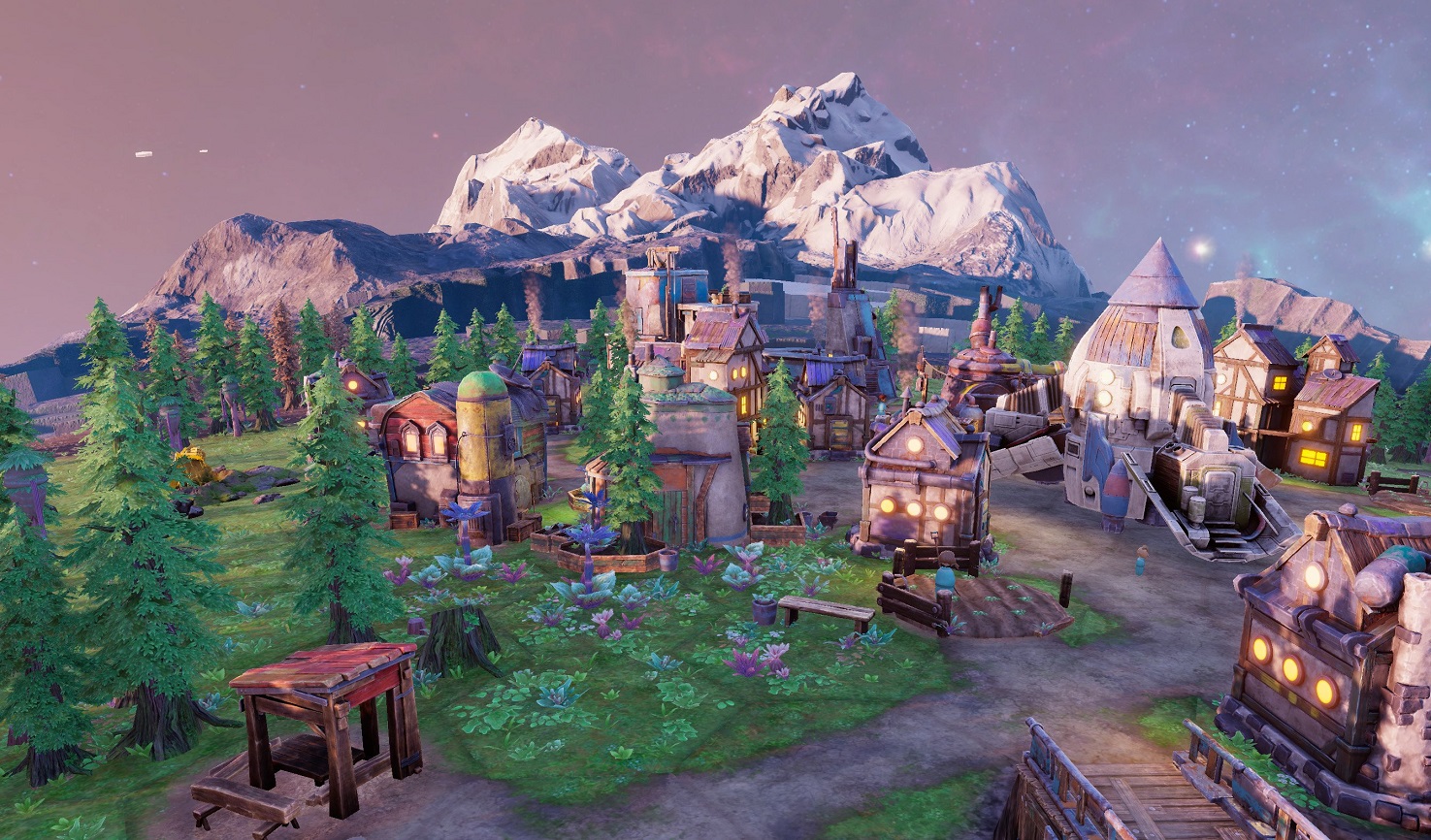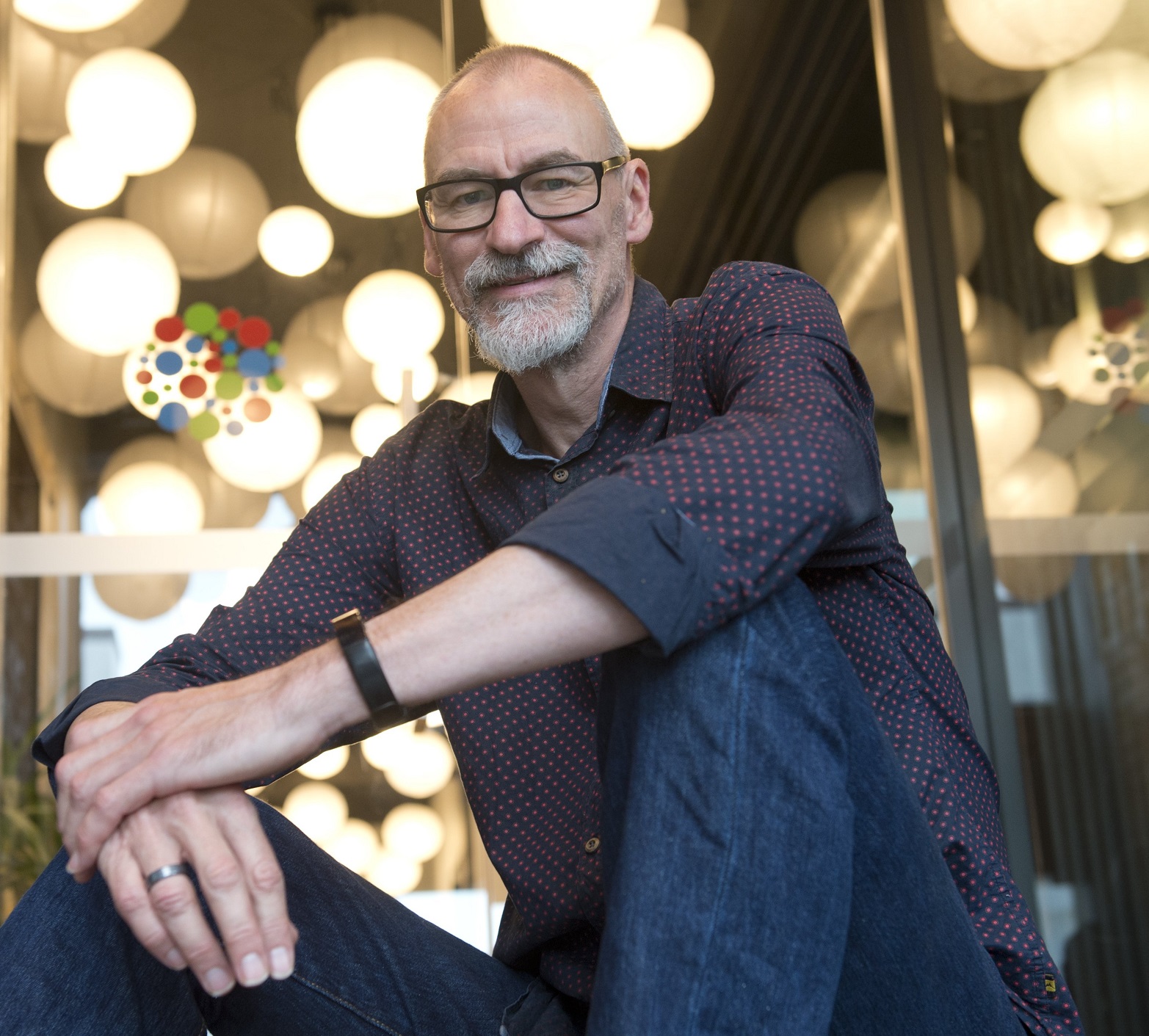
When Sam Barham quit his job of more than 20 years to work from home making games, he did not see it as much of a risk.
"It kind of just felt like the natural thing to do, rather than this deadly scary risk," he said.
"It wasn’t something that I remember approaching with a great deal of fear. It was exciting — I get to do this thing I’ve always wanted to do."
The former software developer turned creative director of Dunedin game studio Balancing Monkey Games said the studio’s debut release Before We Leave began its life as just a hobby he had, eight years ago.
Now the studio boasts six staff in Dunedin, one each in Christchurch and Auckland, as well as four overseas contractors.
Balancing Monkey Games is among many gaming success stories to come out of Dunedin in recent years.
About five years ago, only two or three studios were active in the city.
Since then, that number has grown tenfold — anywhere between 20 and 30 studios exist at any one time.
The burgeoning gaming scene was given a boost in 2019 when Dunedin became the headquarters of the Centre for Digital Excellence (Code) — an economic development initiative by the government whose purpose was to grow the city’s, and the country’s, gaming sector.
Code has invested a total of $4.428 million in New Zealand developers to date, and about $3.4m of that has gone exclusively to Dunedin developers.
Dunedin is second only to Auckland in terms of the number of larger studios. Dunedin boasts a larger number of smaller studios.
The games coming out of Dunedin range from scientists battling paranormal threats in a secret underground research facility, to the wonders of being an albatross.
Mr Barham said Balancing Monkey Games’ Before We Leave was a "mostly non-violent" city-building game that involved rebuilding an ancient civilisation while fending off giant planet-sized space whales from consuming it.
He entered the game in the Kiwi Game Starter competition, and while it did not win, it attracted the attention of fellow New Zealand studio Dry Cactus, which decided to invest in its development.
After quitting his job to work fulltime on the game for another year, he returned to the competition — this time taking home the win.
His success allowed the studio to secure a deal with Epic Games, the creators of viral battle-royale sensation Fortnite, that culminated in the game’s publication in 2020.
While it began as a hobby, Mr Barham said he had always approached the development of the game thinking it could become a fulltime job.
"It’s just been this natural progression, and I certainly didn’t think it would get to this point."
Balancing Monkey Games managing director Anna Barham — Mr Barham’s wife — said Before We Leave was released just before the Covid-19 pandemic, which "really hit the zeitgeist" because of its relaxed and calming nature during a time of global upheaval.

They have even expanded their lease to include another room — sub-leasing the space to two fellow developers: Mune Studio and Atawhai Interactive.
"That’s been really great, having other game developers just across the hallway from us.
"You go in and say hi from time to time, it’s great."
Dunedin’s early adoption of the Gigatown high-speed internet gave them a reason to base their studio in the city, along with cheap rent and good talent.
The only down side was the availability of experienced staff, as a lot of them were quite new to the industry, which had been challenging at times.
Mrs Barham could not say for certain if staying in the city had been beneficial to their success, because she "[couldn’t] imagine doing it any other way".
"With Code here, and with great internet and reasonable rents ... we’ve got everything that we need here."
Code chief executive Tim Ponting is one of the architects of New Zealand’s rising profile in the gaming world.
To him, the success stories of Dunedin studios had not come as a surprise.
"Sometimes you can overcomplicate and overthink these things.
"We have a very deliberate strategy — we don’t feel like it’s rocket science."
Code was formed as part of the government’s manifesto commitment to increase funding to game development in New Zealand, and Enterprise Dunedin had made a compelling pitch to Kānoa — Regional Economic Development & Investment Unit to ring-fence $10m to Dunedin until 2027.
Dunedin was selected as the launchpad for this new initiative as the city had been identified as an area for growth, Mr Ponting said.
Both the University of Otago and Otago Polytechnic Te Pūkenga created a pipeline for young graduates to enter the sector.
Dunedin was also regarded as a creative city because of its rich history of music, literature and the broadcasting arts.
"All of these things kind of played in the reasoning behind why Dunedin was chosen for this initiative, and also because Dunedin stepped up to the plate and grasped it with both hands."
Once investment had hit Dunedin, it had been "absolutely staggering" to see the number of new studios come out of the woodwork.
He estimated Dunedin now had about 150 employees in total — studios of varying sizes mixed and merged but did not necessarily leave the sector.
Code had played a "pivotal role" in growing Dunedin’s gaming sector.
Its role was not about "just giving out government money" but unlocking the ability of Dunedin studios to raise money on top of that initial investment.

Deep Field Games producer and narrative designer Henry Feltham said he "still can’t quite get over the whole Code story in Dunedin".
"I can’t really believe our luck, that this is a scheme that happened to be operating here when we needed it."
Earlier this week, Abiotic Factor — the studio’s second release, a "brains over brawn" battle to escape the paranormal — shot to number five on the Steam bestseller list.
Code granted the studio $150,000 to fund the development of the game in 2022, and it had reached early access two and a-half years later.
Now, a week after its release, it is sitting at number 12 amid a constant stream of global releases.
"Some huge titles have landed this week, the fact that we’ve managed to stay up there as a relatively unknown game in early access is still extraordinary."
The game had experienced a big pick up in China and reached a peak of nearly 21,000 active players.
Over 3500 people had reviewed the game and 97% of them were positive.
The studio began in 2021. Its core team formed from personnel from other studios and teams affiliated with its previous project, which was able to grow with the help of Code to a total of 12 staff — a handful of whom are based in Dunedin, and fresh graduates from Otago Polytechnic.
Mr Feltham said he along with Zoe Hobson, now chief executive of fellow studio Runaway Play, worked together in "what must be Dunedin’s first game studio" — Clock Tower, in late 2006.
Game development did not have the same buzz back then as it does now, and the culture had become a lot more supportive now that Code had stepped in.
Lower set-up barriers, easy connections and a now thriving indie scene made Dunedin an appealing place to produce games in, he said.
In October 2022, Dunedin had its first pavilion at Pax Melbourne — an Australian gaming exposition that attracts tens of thousands of attendees — which Mr Ponting said was a moment that started putting local studios on the map.
"We really did begin to get the sensation that everyone was going ‘wow, New Zealand is pretty cool, they’ve got some really awesome games — what is this place Dunedin’."
Deep Field Games was one of the studios in Melbourne and being there allowed them to connect with Playstack London, who would go on to become their publisher.
Code’s support mechanisms, such as the introduction of travel schemes to generate a New Zealand presence at international gaming trade events, allowed local studios to get in front of international publishers "in the right place at the right time" to secure publishing deals.
He estimated about 95% of all revenue made by developers came from overseas.
Dunedin was particularly good for attracting this overseas investment, and the opportunities and level of support by agencies for graduates meant a lot of boxes were already checked by overseas companies seeking investment, Mr Ponting said.
"We’re very excited about the prospects for Dunedin to become one of the powerhouses in this industry, but in a very Dunedin way.
"We’re not going to be home to massive multinationals, these are going to be small agile highly profitable successful companies taking their games globally and seeing their revenue come into the city and support our economy here."











